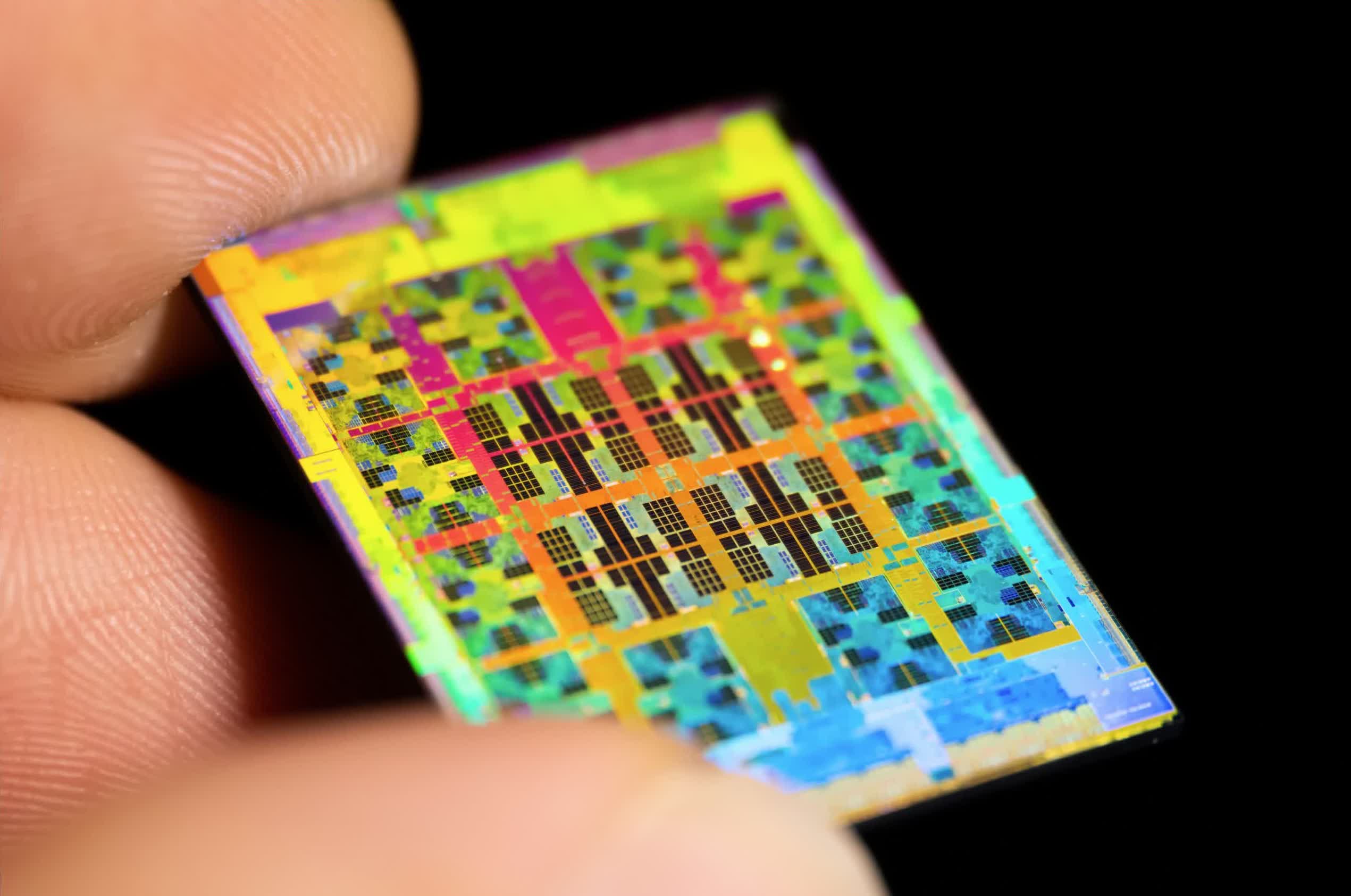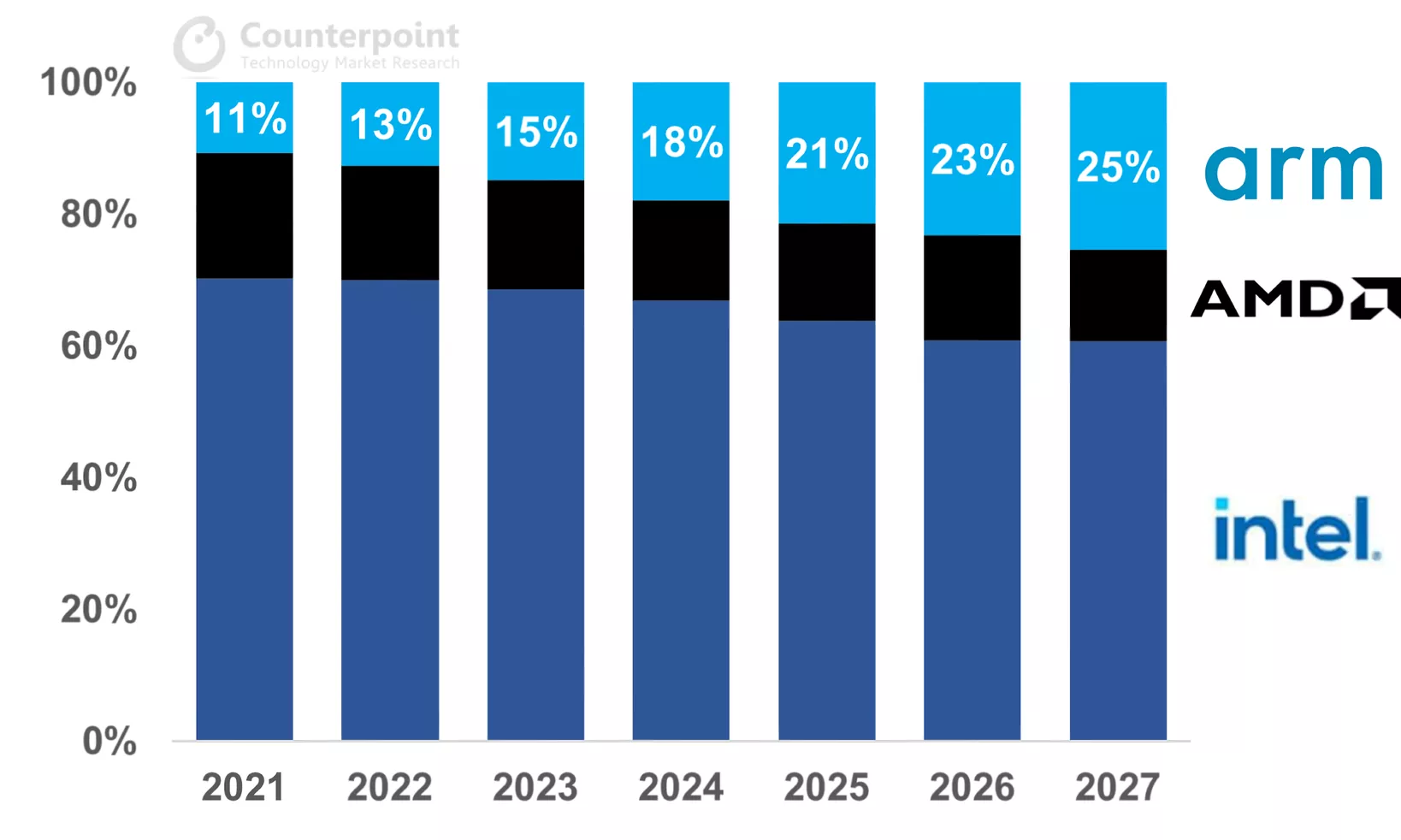In brief: Global PC shipments dipped more than 16 percent last year and the outlook for the majority of 2023 isn't much better, but there is at least one ray of hope in an otherwise stormy sky.

According to the latest data from Counterpoint Research, Arm-based laptops are on track to claim significant market share from traditional x86-based machines in the coming years.
Apple helped pave the way with the launch of its M1 SoC in late 2020, and successive iterations have only widened the company's lead in the space. In 2022, Apple led the Arm laptop market with a 90 percent share and helped push the category to a 13 percent overall laptop CPU market share.
Counterpoint's data jives with what IDC reported last month. If you recall, the market research firm said Apple shipped 7.5 million Macs in the fourth quarter and 28.6 million units for the full year. Among the top five major PC makers, Apple was the only one with positive year-over-year growth. The next closest was Asus with a 5.7 percent year-over-year decline in shipments.

Analysts with Counterpoint expect Arm-based machines to account for 15 percent of laptop shipments this year and 18 percent in 2024, thanks largely in part to increasing ecosystem support and a diminishing performance gap versus x86 offerings.
By that time, Counterpoint anticipates other major CPU providers like MediaTek and Qualcomm to have their Arm-based solutions ready to roll. Barring any unforeseen circumstances, one in four laptops sold in 2027 could be powered by an Arm processor.
Arm's gain will inevitably come at the expense of current market leaders AMD and Intel. Counterpoint believes Intel could suffer the most and forfeit nearly 10 percent of its market share to Arm systems in the next five years.
The overall PC market might not see a return to growth until late this year with a broader recovery expected in 2024. For now, as IDC put it, the consumer market remains a wildcard.
Image credit: Fritzchens Fritz
https://www.techspot.com/news/97571-arm-cpus-forecast-capture-quarter-laptop-market-2027.html